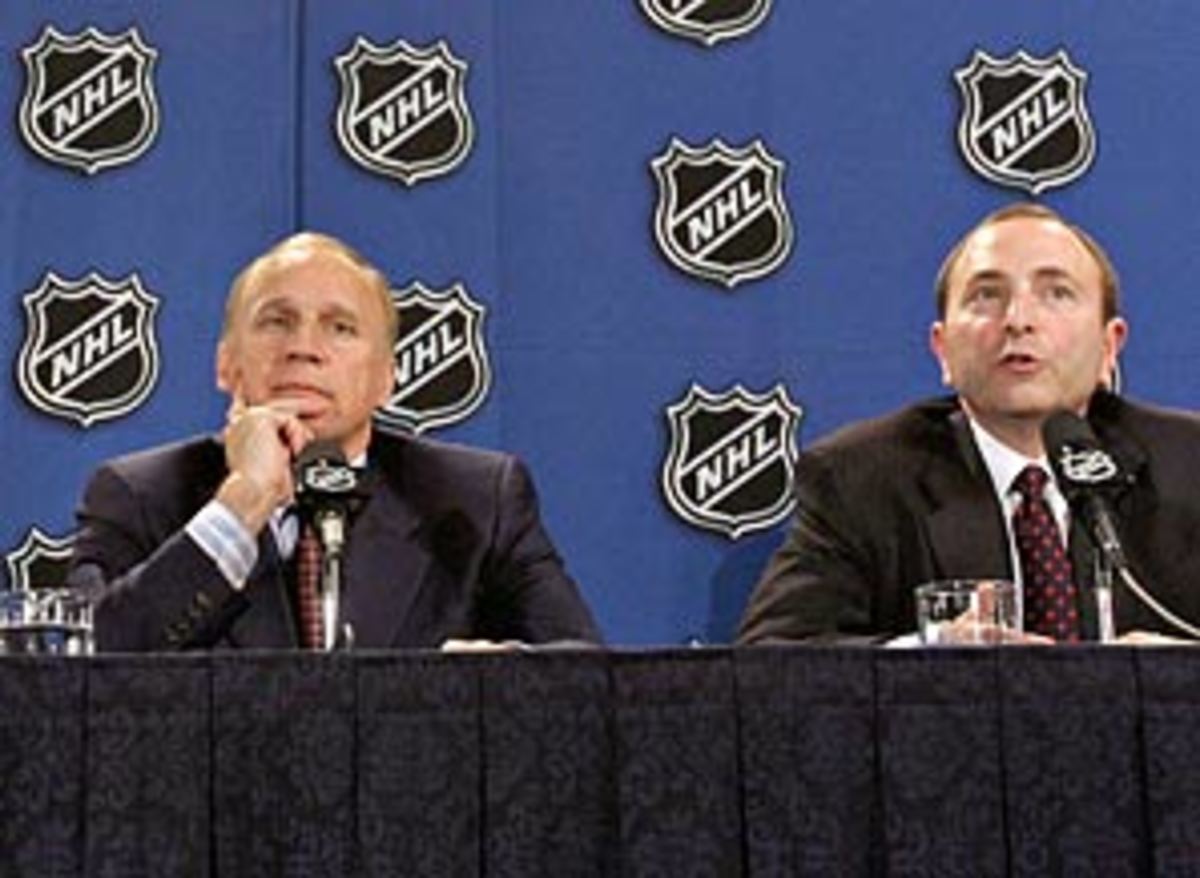Colin Campbell's hardly safe


Sorry Collie, this one is not going to go away simply because Commissioner Gary Bettman defended you on his radio gig or you got face time on hockey talk shows in recent hours.
This time it's not outside the realm of rhyme or reason that you, a lightning rod for criticism of the way the NHL steers itself to its most tortured on-ice and supplementary discipline rulings, could soon be pressured to "move along" by the very people who have so elegantly and intellectually befriended you, particularly the powers above.
It's likely there will be no rush to judgment, but this snafu isn't going to suffer a stonewall death. There is simply too much going on and too much finger-pointing at the way at the way things usually happen when the public cries out for transparency and the league answers with something akin to a blind eye. But what fascinates me about this e-mail matter is not when, or even if you are let go, but who makes the call and how will it be justified.
Those e-mails are the kind of stuff that should never have seen the light of a computer screen. Campbell, of all people, should have known that and acted accordingly. But it's out there now and it's created a problem of perception, and perception problems have long been real thorns for the NHL, so whenever they crop up, the league has usually acted quickly and with, some might say, a vengeance.
Example 1: A steamy June night in Buffalo, Game Six of the 1999 Stanley Cup Final and Brett Hull appears to have ended a triple overtime game by scoring the Cup-winning goal for the Dallas Stars. The celebration is on, a member of the NHL Operations Department has "released the media hounds," so to speak, by opening the Zamboni doors and flooding the ice with news crews and celebrants. Just one problem:
Referees Bill McCreary and Terry Gregson are still standing at the scorer's table, waiting for a call that says the goal has been reviewed and is good. At the same time, Sabres coach Lindy Ruff and assistant Mike Ramsey are chasing Commissioner Gary Bettman around the back corridors of HSBC Arena arguing that the decision should be overturned because Hull's skate was in the goal-crease (a no-no at the time, depending on whether you read the rule book or a memo just before the start of the playoffs that was not circulated to media or general public). Those who are still in the press box can see officiating director Bryan Lewis making his way to the ice-level elevator to the press box while McCreary and Gregson wait, and wait, and wait for a call that never comes.
Eventually, they give up. And outside the Sabres locker room, Lewis makes some shaky explanations to Jean Knox, the wife of the late, beloved Seymour Knox III, the owner of a franchise that now seems like it is due some serious explanation. Ruff continues to rail and Bettman is seen leaving the building.
When the dust refuses to settle, a press conference is held during which Lewis proclaims all is good. Several months later, he announces he will be stepping down as Director of Officiating to be with his wife while she battles a serious medical ailment. He never returns to the league.
Example 2: After Lewis stepped down, Andy Van Hellemond became Director of Officiating from 2000 to 2004. By all accounts, the Hall of Fame referee was doing a good job until there are accusations that he had been borrowing cash from underlings to "invest" at local race tracks. Deputy Commissioner Bill Daly rose from his chair and pointed out that to avoid even the perception of impropriety, Van Hellemond was resigning. He had done nothing wrong, mind you. It was just a sensitive issue where even the suggestion of possible wrongdoing could not be allowed to stand.
Like Lewis, Van Hellemond never returned.
The overriding message here is that when things go wrong, if there is a lamb to be sacrificed, so be it. There's a protect-your-king methodology seemingly right out of Braveheart and even when that can't be accomplished, there is at least a circling of the wagons. But this e-mail thing is too close to the top. This is Colin Campbell, a man who has been involved in more top-level NHL decisions than anyone has a right to be carrying around in his head.
The league is good at stonewalling, but this matter isn't likely to go away soon. At some point, people will demand answers and they won't demand them from Campbell, but the people who employ him. That's a small group, one that could have a lot to lose.
The NHL has its own way of doing things and over the years the disconnect between its way and fans who try to understand it all has reached Grand Canyon proportions. The view from here is that this matter has now reached a point where the league must choose to make a move at the top or stonewall once again in the belief that this affair will blow over. In the balance lies any semblance of credibility, the kind the league recently blasted away in a series of misstatements in a Phoenix bankruptcy court (media lies, they said) as well as in the matter of the validity of new ownership investors in Nashville.
If Campbell gets hit with enough inside-outside pressure, he could find himself out.
